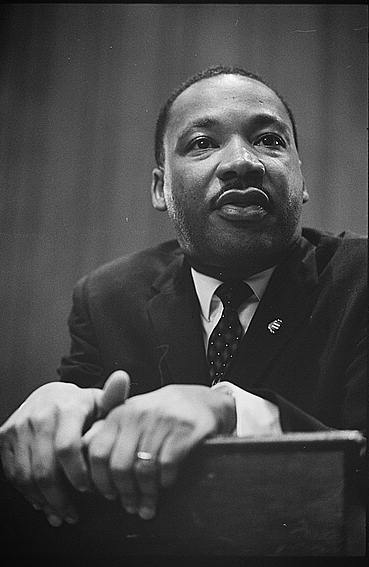The Content of Your Character!
The date that we celebrate the Rev. Dr. Martin Luther King’s birthday is upon us. Dr. King talked of character, and I discuss a professional’s sales character in this post. Character is important, and it is what you will be judged by in your professional career. It is the basis of a meaningful relationship.
_______________
Rev. Dr. Martin Luther King spoke eloquently regarding the future saying:
“…I have a dream that my four little children will one day live in a nation where they will not be judged by the color of their skin but by the content of their character.”
Rev. Dr. Martin Luther King 8/28/1963
This speech delivered by this iconic individual symbolizes that there will be a day when skin color and race are not used as determinants of a ‘man’, but strength of mind, morality, independence, individuality, and other qualitative factors would be the measure used for judgment.
Obviously we are not there yet, or there would be no need for Black Sales Journal. Progress has been made no doubt, yet there is still significant work to do.
Black Sales professionals have a lot to offer, and I will quickly define what I will call “sales character” which makes a real difference in professionals. When you examine you professional character, you are looking at some qualities that make a real difference in any sales professional.
The Attributes
I would describe these characteristics or attributes as those that greatly contribute to the content of one’s sales character:
- Ethical
- Mentally Tough
- Persistent
- Responsive
- Innovative
- Humility
There are probably more that qualify; yet these are high on the list.
Ethical – Solid ethics are important in everything, but extremely important in sales, where trust and honesty have high relative importance. I went in depth on this subject in Black Sales Journal 12/1/2011- Are You Ethical?
Mentally Tough– Strength and toughness are qualities that make up the sales persona of any true professional. It is so important in this ‘lonely’ profession that if you don’t have it, you should consider another professiona. Rejection, most of which is not personal, abounds, and this requires a business stubbornness that is somewhat unique to this profession. Visit Black Sales Journal 12/29 Mental Toughness – Asset For the Black Sales Professional for a review of this valuable topic.
Persistent – Persistence is a trait that makes the sales professional special. Prospecting activities that bear no fruit are an obstacle to many. The persistent sales professional who makes 24 calls knows that the 25th may result in an appointment, and also knows that the 26th may bear fruit as he knows his or her metrics and success ratio with making appointments. I worked at a place once that had a monetary Persistency Bonus for those who kept pushing and pushing.
Responsive – You are responsive because you have customers and an employer who depend on you. Customers have needs and expectations and deserve a sales professional who can make them a priority. The employer counts on the sales professional for more than just sales, as service and territory coverage are important as well. A great reference would be BSJ 6/16 Responsiveness – The Objective of the Sales Professional.
Innovative – The ability to come up with solutions that work in real time is what innovation gives. Sales professionals also suggest changes in product and process that benefit the customers.
Humility – This one is tough for many sales professionals whose confidence level and sense of being the integral cog overshadows all else. Being able to credit an associate or sales team is a must. It is difficult for many professionals even though it should not be. An associate who dances on the desk after a significant sale does not get it! Spend that time crediting your associates and act like you have been in the end-zone before.
Real Life
Real life gives you things that you can’t even make up. Truth be told, it can also give you characters could be on the silver screen.
I gave this example in Black Sales Journal, in Are you Ethical? The Question for All (12/1/2011). This section was entitled “Even When No One Is Looking!”
I was once riding in a company vehicle with a sales rep and the customer to a business lunch in the Chicago area. We were coming to a toll both and the rep reached into a bag and grabs a coin, which he deposited in the automatic toll basket and we were allowed to proceed. At that time the toll was 25 cents. On the way back from the successful lunch, he did the same. As he did it, I looked at the bag, which must have had 200 or more coins and inquired as to how he got that many quarters. He indicated that they were not quarters, but after a recent trip to Mexico he had a bag of centavos that were essentially worthless here.
Remember, this is in front of the customer. Our customer heard him admit to using worthless foreign coins in the toll basket. If you were the customer, how would you feel about this reps credibility? What would you think about the organization that you were doing business with as you witnessed him doing it in front of his manager?
We had to terminate the rep (I refuse to call him a sales professional). Let’s look at it from an employer’s view. This unethical individual did the following:
- Sullied his image and the organization’s image in front of the customer creating doubt as to our ethics and credibility
- Engaged in a civil wrong which might have carried criminal penalties as well
- Committed expense fraud as he also received reimbursement for fraudulent expenses
I contacted the customer as I introduced the new sales rep. I apologized for the fact that our representative did what he did, and explained that I had someone who was solid who would take care of him. The customer said the following to me, “I really wondered about what organization would allow an employee to cheat like that. I liked [him] but realized that I did not know him well enough to trust him.” The customer was watching my response as much as he was watching the actions of the rep.
Summary
I know there are other traits and characteristics, yet these are truly important. I say we all will be judged by the “content of character” as sales professionals at some point. Our customer’s and our employer’s notice our character.
Be the best!
Your comments are welcome. Write me at michael.parker@blacksalesjournal.com.
 January 15, 2018
|
Posted by Admin9!
January 15, 2018
|
Posted by Admin9!

 Categories:
Categories:  Tags:
Tags: 

Your Comments